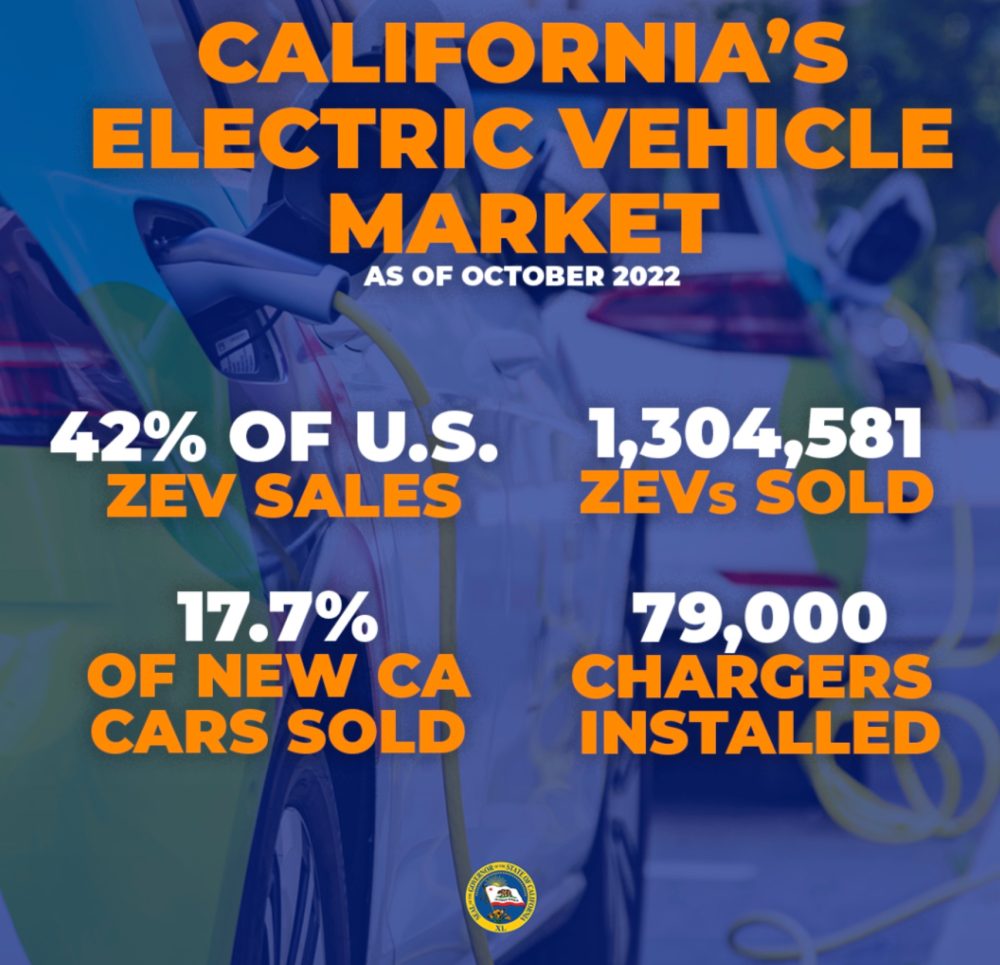
California announced that electric car sales represent nearly 18% of new car sales in the state compared to 6% for the whole of the United States.
While EV naysayers claim that subsidies are all that is keeping electric vehicles alive, there are only in fact two things right now that the US EV market can’t do without: California and Tesla.
The latter hasn’t even had access to federal EV subsidies for years.
Tesla owns about two-thirds of the all-electric car market in the US. Without the Texas-based automaker, EV sales in the country would be extremely low.
Also, where those vehicles are going shows that the US market is extremely fragmented.
California’s Office of the Governor issued a report on the progress of the state’s electric vehicle market that states that now nearly 18% of all new cars sold in the state are all-electric:

Of course, that sounds unimpressive when you compare it to a market like Norway, which is already at over 80%.
But 18% is impressive in America.
Electric vehicles account for roughly only 6% of new car sales in the whole of the country. That number would also be much lower without California since of the ~576,000 EVs sold in the US so far in 2022, over 250,000 were in California.
Electrek’s Take
California is making significant progress, and I think 2023 is going to be a big year for EVs in the state. I can see them finishing 2022 at 20% and closer to doubling that next year.
I know that sounds a bit crazy, but people have been underestimating the growth of the EV market for years. I think the launch of several new EV models in 2023 is going to help tremendously, especially electric pickup trucks.
But it also shows that there’s a lot of work to be done in the rest of the country since it looks like the US would be at about 4% EV adoption if it weren’t for California.
Again, new EV models are going to help, but it’s clear things need to change in order to achieve wider adoption. The number-one thing is better EV infrastructure. Tesla is doing well outside of California, but the automaker benefits from a strong Supercharger network, while non-Tesla EVs still have charging infrastructure issues.
The good news is that there are a lot of investments to expand EV charging in the US, but it might take a while to feel the impact.
FTC: We use income earning auto affiliate links. More.





Comments